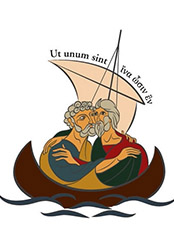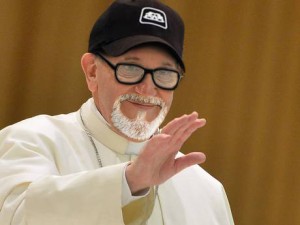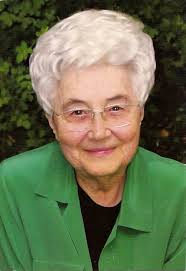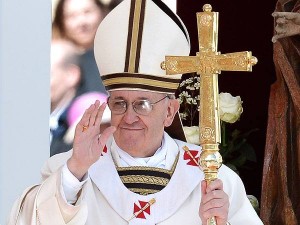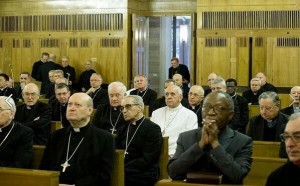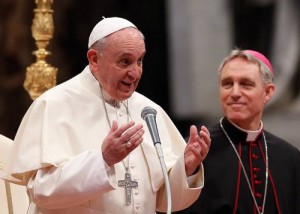 On March 5, 2014, Ferruccio de Bortoli conducted an interview published in Corriere della Sera, with Pope Francis about his first year at the head of the Church.
On March 5, 2014, Ferruccio de Bortoli conducted an interview published in Corriere della Sera, with Pope Francis about his first year at the head of the Church.
Papal interviews are helpful because they further explicate the petrine ministry. Plenty of people, however, on both sides of the theological fence, who are nervous about the way the Holy Father makes decisions. I think it is fair to say that Pope Francis does not engage the “issues” at hand in the same way as Pope Benedict and Pope John Paul before him. It is obvious to say this because of the differences in the way each person engages the mind and heart. Pope Francis takes a few more risks in speaking to the public in his off-the-cuff process, he’s going to the periphery of thinking. There are distinct times that what the Holy Father said is clearly twisted by the opponents of the Church. Several politicians and public intellectuals come to mind; and there is a number of clergymen who have done so.
On the issue of the way Pope Francis aims at making decisions can be seen in what Jesuit Father Antonio Spadaro, an interviewer of the Pope back in August 2013. Edward Pentin of the National Catholic Register brings out that the Holy Father makes decisions by discernment. Father Spadaro said,
Pope Francis’ way of making decisions, because it’s very Jesuitical. He speaks in a very Jesuitical language, so we have to explain it. He doesn’t make decisions balancing reasons. He makes decisions by discernment, so praying and trying to feel the Spirit, trying to be inspired, balancing the emotions of the spirit, not reason or logic. It’s a completely different way of proceeding, a different way of thinking. So I explain what this means in the book.
Also, Pope Francis talks briefly about his decision-making manner. Keeping in mind what Spadaro said, here is an English translation of the Corriere della Sera:
One year has gone by since that simple “good evening” that moved the world. The lapse of 12 very intense months is not able to contain the great mass of Francis’ novelties and profound signs of pastoral innovation. We are in a small room in Saint Martha’s. The only window looks out onto a courtyard that opens a minuscule angle of blue sky. The Pope appears suddenly through a door, with a relaxed and smiling face. He is amused by the various recording devices that the senile anxiety of the journalist placed on the table. “Do they all work? Yes? Thank goodness.” The assessment of this year? No, he doesn’t like assessments. “I only do an assessment every 15 days, with my confessor.”
Holy Father, every now and then you call on the telephone those who ask you for help. And sometimes, do they not believe it’s you?
Holy Father: Yes, it’s happened to me. When someone calls it’s because he wants to talk, has a question to ask, advice to request. When I was a priest in Buenos Aires it was easier. And I have kept that custom. It’s a service, it is expressed like that. But it’s true that now it’s not so easy to do, given the quantity of people who write to me.
Do you remember any one of those contacts with particular affection?
Holy Father: An 80-year-old widow who had lost her son wrote to me. And now I give her a call once a month. She is delighted. I do the [role of a] priest. I like it.
In regard to your relations with your predecessor, Benedict XVI, have you ever asked him for advice?
Holy Father: Yes, the Pope Emeritus isn’t a museum statue. It’s an institution we’re not used to. Sixty or seventy years ago, the figure of the Bishop Emeritus didn’t exist. That came after Vatican Council II and now it’s an institution. The same has to happen with the Pope Emeritus. Benedict is the first and perhaps there will be others. We don’t know that. He is discreet, humble, he doesn’t want to bother. We spoke about it and together we came to the conclusion that it would be better if he saw people, that he come out and participate in the life of the Church. Once he came here on the occasion of the blessing of the statue of Saint Michael the Archangel, then for a lunch in Saint Martha’s and, after Christmas, I returned the invitation to participate in the Consistory and he accepted. His wisdom is a gift of God. Some would have liked him to retire to a Benedictine Abbey far from the Vatican. And then I thought of grandparents, who with their wisdom and advice give strength to the family and do not deserve to end in a retirement home.
We think that your way of governing the Church is like this: you listen to everyone and then you decide alone – somewhat like the Father General of the Jesuits. Is the Pope a man who is alone?
Holy Father: Yes and no, but I understand what you wish to say to me. The Pope is not alone in his work because he is supported by the advice of many. And he would be a man alone if he decided not to listen to anyone or to pretend that he listened. However, there is a moment when one must decide, when one must sign, in which he remains alone with his sense of responsibility.
You have innovated, criticized some attitudes of the clergy. You have revolutionized the Curia, with some resistance and opposition. Has the Church already changed as you wished a year ago?
Holy Father: Last March I had no plan to change the Church. I was not expecting, let’s put it this way, this transfer of diocese. I began to govern, trying to put into practice everything that had emerged in the debate among the Cardinals of the different Congregations. And in my actions I hope to count on the Lord’s inspiration. I’ll give you an example: there has been talk of the spiritual situation of people who work in the Curia, and then they started to make spiritual retreats. More importance should be given to annual Spiritual Exercises. All have a right to spend five days in silence and meditation, whereas before in the Curia they listened to three homilies a day and then some continued working.
Are tenderness and mercy the essence of your pastoral message?
Holy Father: And of the Gospel. They are the heart of the Gospel. Otherwise, one doesn’t understand Jesus Christ, or the tenderness of the Father who sends Him to listen to us, to cure us, to save us.
But was this message understood? You said that the “Francis mania” wouldn’t last long. Is there something of your public image that you don’t like?
Holy Father: I like to be among the people, with those who suffer, and to go to the parishes. I don’t like ideological interpretations, a certain mythology of Pope Francis. When it is said, for instance, that I go out from the Vatican at night to feed beggars on Via Ottaviano – I would never even think of it. Sigmund Freud said, if I’m not mistaken, that in all idealization there is an aggression. To paint the Pope as if he is a sort of Superman, a sort of star, I find offensive. The Pope is a man who laughs, cries, sleeps peacefully and has friends like everyone else. He is a normal person.
Do you have nostalgia for your Argentina?
Holy Father: The truth is that I have no nostalgia. I would go to visit my sister, who is sick, the last of five of us. I’d love to see her, but this does not justify a trip to Argentina: to call by phone, that is enough. I do not think I’ll go before 2016, because I have already been to Latin America, to Rio. Now I have to go to the Holy Land, to Asia, and then to Africa.
You have just renewed your Argentine passport. You are still a head of state.
Holy Father: I renewed it because it had expired.
Were you annoyed that they accused you of being Marxist, especially in the United States, after the publication of “Evangelii Gaudium”?
Holy Father: Not at all. I never shared the Marxist ideology because it’s false, but I knew many good persons who professed Marxism.
The scandals that perturbed the life of the Church fortunately are now in the past. On the delicate topic of the abuse of minors, philosophers Besancon and Scruton among others, asked you to raise your voice against fanaticism and the bad faith of the secularized world that doesn’t respect childhood much.
Holy Father: I wish to say two things. The cases of abuse are terrible because they leave very profound wounds. Benedict XVI was very courageous and opened the way. And, following that way, the Church advanced a lot, perhaps more than anyone. The statistics on the phenomenon of violence against children are shocking, but they also show clearly that the great majority of the abuses come from the family environment and from people who are close. The Catholic Church is perhaps the only public institution that moved with transparency and responsibility. No one else did as much. And yet, the Church is the only one being attacked.
You say that “the poor evangelize us.” The attention given to poverty, the strongest mark of your message, is taken by some observers as a profession of pauperism. The Gospel doesn’t condemn wealth. And Zacchaeus was rich and charitable.
Holy Father: The Gospel condemns the worship of wealth. Pauperism is one of the critical interpretations. In the Medieval Age there were many pauperist currents. St. Francis [of Assisi] had the genius of placing the subject of poverty in the evangelical journey. Jesus says that one cannot serve two masters, God and money. And when we are judged at the end of time (Matthew, 25), we will be asked about our closeness to poverty. Poverty removes us from idolatry and opens the doors to Providence. Zacchaeus gives half of his wealth to the poor. And those whose barns are full of their own egoism, the Lord, at the end, will call to account. I think I expressed well my thought on poverty in “Evangelii Gaudium.”
You identify in globalization, especially financial, some of the evils that humanity suffers. However, globalization brought millions of people out of poverty. It brought hope, a rare sentiment that must not be confused with optimism.
Holy Father: It’s true, globalization saved many people from misery, but it condemned many others to die of hunger, because with this economic system it becomes selective. The globalization that the Church thinks of does not look like a sphere in which every point is equidistant from the center and in which, therefore, the particularity of peoples is lost. It is, rather, a polyhedron, with its different facets, in which each nation keeps its own culture, language, religion, identity. The present “spherical” economic globalization, especially the financial, produces one thought, a weak thought. And the human person is no longer at its center but only money.
The subject of the family is central for the activity of the Council of Eight Cardinals. Since John Paul II’s Exhortation “Familiaris Consortio”, many things have changed. Great novelties are expected. And you said that divorced persons must not be condemned – that they must be helped.
Holy Father: It is a long path that the Church must complete, a process that the Lord wants. Three months after my election, I was submitted the topics for the Synod, and we decided to discuss what Jesus’ contribution is to contemporary man. However, at the end – which for me is a sign of the will of God — we decided to discuss the family, which is going through a very serious crisis. It’s difficult to form a family. Young people no longer get married. There are many separated families, whose common life plan failed. The children suffer a lot. And we have to give an answer. However, we have to reflect a lot on this, and in depth. This is what the Consistory and the Synod are doing. We must avoid staying on the surface of the topic. The temptation to resolve each problem with casuistry is an error, a simplification of profound things. It’s what the Pharisees did: a very superficial theology. And it is in the light of this profound reflection that particular situations will be able to be addressed seriously, also that of the divorced.
Why did Cardinal Walter Kasper’s report in the last Consistory (an abyss between the doctrine on marriage and the family and the real life of many Christians) generate so much division among the Cardinals? Do you think that the Church will be able to go through these two years of toilsome journey to come to a broad and serene consensus?
Holy Father: Cardinal Kasper made a beautiful and profound presentation, which will soon be published in German, in which he addresses five points, the fifth of which is that of second marriages. I would have been more worried if there hadn’t been an intense discussion in the Consistory, because it would have been useless. The Cardinals knew that they could say what they wanted, and they presented different points of view, which are always enriching. Open and fraternal debate makes theological and pastoral thought grow. That doesn’t frighten me. What’s more, I look for it.
In the recent past, it was customary to refer to “non-negotiable values,” especially on questions of bioethics and sexual morality. You haven’t used that formula. Is that choice a sign of a less prescriptive style, more respectful of individual conscience?
Holy Father: I never understood the expression “non-negotiable values.” Values are values and that’s that. I can’t say which of the fingers of the hand is more useful than the rest, so I don’t understand in what sense there could be negotiable values. What I had to say on the topic of life I have put in writing in “Evangelii Gaudium.”
Many countries have regulated civil unions. Is it a path that the Church can understand? But up to what point?
Holy Father: Marriage is between one man and one woman. The secular States want to justify civil unions to regulate different situations of coexistence, spurred by the need to regulate economic aspects between persons as, for instance, to ensure healthcare. Each case must be looked at and evaluated in its diversity.
How will the role of women be promoted within the Church?
Holy Father: Casuistry doesn’t help in this case either. It’s true that women can and must be more present in decision-making posts of the Church. But I would call this a promotion of a functional type. And with that alone, one doesn’t advance much. Rather, we must think that the Church has the feminine article, “la”: it is feminine by origin. Theologian Urs von Balthasar worked a lot on this topic: the Marian principle guides the Church by the hand of the Petrine principle. The Virgin is more important than any Bishop and any of the Apostles. The theological reflection is already underway. Cardinal [Stanislaw] Rylko [president of the Pontifical Council for the Laity], together with the Council of the Laity, is working in this direction with many expert women.
Half a century after Paul VI’s encyclical “Humanae Vitae,” can the Church take up again the topic of birth control? Your confrere, Cardinal [Carlo Maria] Martini [the late Archbishop of Milan] believed it was now time.
Holy Father: It all depends on how the text of “Humanae Vitae”is interpreted. Paul VI himself, towards the end, recommended to confessors much mercy and attention to concrete situations. But his genius was prophetic, as he had the courage to go against the majority, to defend moral discipline, to apply a cultural brake, to oppose present and future neo-Malthusianism. The object is not to change the doctrine, but it is a matter of going into the issue in depth and to ensure that the pastoral ministry takes into account the situations of each person and what that person can do. This will also be discussed on the path to the Synod.
Science evolves and redraws the ends of life. Does it make sense to prolong life in a vegetative state?
Holy Father: I’m not a specialist on bioethical arguments, and I’m afraid of being mistaken in my words. The Church’s traditional doctrine states that no one is obliged to use extraordinary methods when someone is in his terminal phase. Pastorally, in these cases I have always advised palliative care. On more specific cases, should it be necessary, it’s appropriate to seek the advice of specialists.
Will your trip to the Holy Land lead to an agreement of intercommunion with the Orthodox that Paul VI, fifty years ago, almost signed with [Patriarch] Athenagoras?
Holy Father: We are all impatient about achieving “sealed” results. But the path of unity with the Orthodox means above all walking and working together. In Buenos Aires, several Orthodox came to the catechetical courses. I usually spent Christmas and 6 January together with their bishops, who sometimes even asked the advice of our diocesan offices. I do not know if the story is true that Athenagoras told Pope Paul VI that he proposed that they walk together and send all the theologians to an island to discuss among themselves. It’s a joke, but it is important that we walk together. Orthodox theology is very rich. And I believe that they have, at this time, great theologians. Their vision of the Church and collegiality is marvelous.
In a few years the greatest world power will be China with which the Vatican has no relations. Matteo Ricci was a Jesuit like you.
Holy Father: We are close to China. I sent a letter to President Xi Jinping when he was elected, three days after me. And he answered me. The relationships are there. They are a great people whom I love.
Why, Holy Father, do you never speak about Europe? What is it about the European project that does not convince you?
Holy Father: Do you remember the day when I spoke of Asia? What did I say? (Here the reporter ventures to give some explanation, collecting vague memories only to realize that he had fallen for a nice trick). I have not spoken about Asia, or Africa, or Europe. Only about Latin America when I was in Brazil, and when I had to receive the Commission for Latin America. There hasn’t yet been a chance to talk about Europe. It will come.
What book are you reading these days?
Holy Father: ‘Peter and Magdalene’ by Damiano Marzotto on the feminine dimension of the Church. A beautiful book.
And you’re not able to see any good films, another of your passions? “La Grande Bellezza” won an Oscar. Will you see it?
Holy Father: I don’t know. The last movie I saw was Benigni’s ‘Life is Beautiful’. And before I had seen Fellini’s ‘La Strada’. A masterpiece. I also liked Wajda…
St. Francis had a carefree youth. I ask you: have you ever been in love?
Holy Father: In the book The Jesuit, I recount when I had a girlfriend at the age of 17. And I mention it also Heaven and Earth, the volume that I wrote with Abraham Skorka. In the seminary, a girl made my head spin for a week.
And if you do not mind me asking, how did it end?
Holy Father: They were things of youth. I spoke with my confessor about it [a big smile].
Thank you Holy Father.
Holy Father: Thank you.
NB: A CNS image by Paul Harring
